Our pulmonary systems function all day every day and are crucial to creating energy that controls the functioning of every part of our body. Breathing in oxygen and breathing out carbon dioxide sounds like an easy and monotonous job to do. But from exposure to harmful pollutants to seasonal respiratory woes, it must tolerate a lot of stressors to perform its function efficiently.
Detoxing your lungs and improving the overall health of your respiratory system can be beneficial to live a happy and healthy life. Simple yoga exercises like Pranayam aim to perform a simple detox every day to regulate the efficiency of your respiratory system. But nothing speaks detox louder than herbs. Some potent herbs can power through these stressors and clean your lungs off all pollutants, foreign particles, and inflammation to guide you to healthy breathing. Here are seven powerful herbs that can perform lung cleansing and improve your respiratory health.
1. Plantain Leaf
The plantain has been a part of ayurvedic medicine to cure a common cold, cough, and several respiratory ailments for centuries now. The plant is widely found in the European, Northern and Central Asian regions, and requires nothing but enough water to grow. Given it barely needs any care, the plant is taken for a weed in several parts of Australia, although the medicinal benefits of this herb are incredible.
The rich nutrient profile of plantain leaves is responsible for the anti-inflammatory, astringent, antimicrobial, and diuretic properties of the plant. The tannins, flavonoids, silicic acid, vitamins, oleanolic acid, zinc, iron, potassium, combine to banish bronchitis and symptoms of irritation in the lung, including dry cough. The antibacterial properties eliminate bacterial colonies that could initiate mucous formation. The Mucilage compound in the plant is responsible for easing the irritation in the lung. It does so by moistening the air passageway.
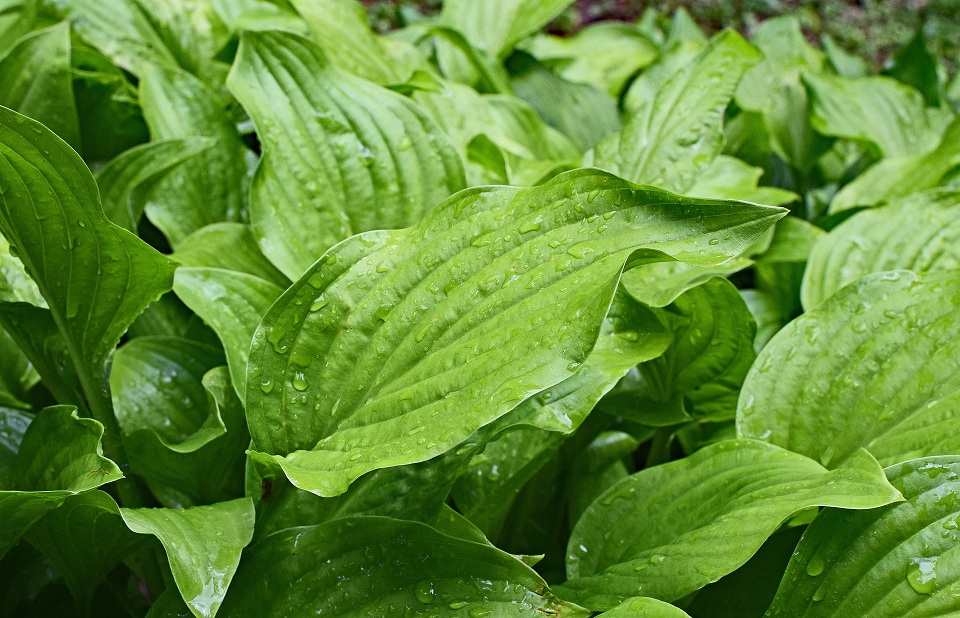 Studies indicate that the use of plantain leaf extracts could ease symptoms of mild bronchitis, tuberculosis, as shown in the test results with rat subjects. The plant tannins have anti-inflammatory properties that aids to combat inflammation in the lungs to encourage healing. It can also prevent further bacterial formation and maintain respiratory health.
Studies indicate that the use of plantain leaf extracts could ease symptoms of mild bronchitis, tuberculosis, as shown in the test results with rat subjects. The plant tannins have anti-inflammatory properties that aids to combat inflammation in the lungs to encourage healing. It can also prevent further bacterial formation and maintain respiratory health.
Plantain leaf tea is a great way of enjoying a flavourful recipe to clean your lungs. Add about 4 grams of dried leaves to water and boil for over 10 minutes. Enjoy the tea twice a day to eliminate cough symptoms. You can also use infused oil or tincture to detox.
2. Oregano
Apart from enriching your favorite Mediterranean cuisine, oregano can have amazing benefits to your lung health. The herb is brimming with nutrients and antioxidants that make it a great choice for cleansing your lungs.
The antihistamine effects of oregano come from the potent profile of flavonoids, terpenes, and carvacrol present in the herb. These play an important role in relieving nasal congestion related to allergies, pollutants, and harmful microbes. The herb interacts with the body to reduce the efficiency of histamine produced to alleviate stimuli such as sneezing and mucous membrane activity to ease nasal blockage. Another reason for the efficiency of oregano to aid in allergic reactions is the presence of rosmarinic acid. A study states that that acid influences the mucus build up as well as inflammation in response to allergic compounds that curbs the symptoms.
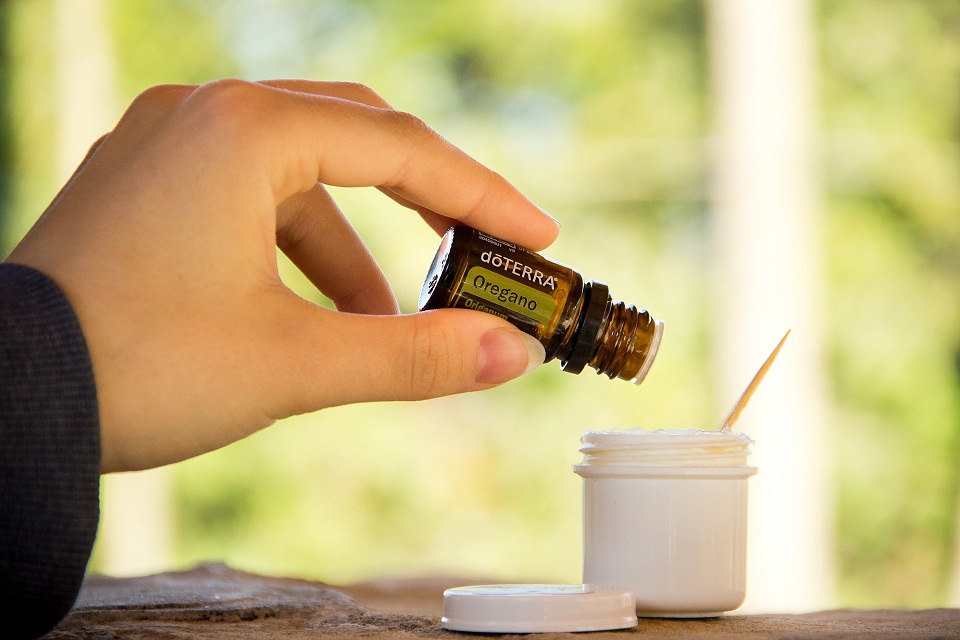 A study from 2017 indicates that oregano oil can actively reduce respiratory symptoms related to flu and fever. It can also ease some other symptoms of flu, including body ache and sore throat. It can inhibit harmful microbes from your respiratory tract and treat cough. The antioxidant properties of the oil enable it to improve your immunity and loosen the phlegm and mucus formation in the lung during ailments.
A study from 2017 indicates that oregano oil can actively reduce respiratory symptoms related to flu and fever. It can also ease some other symptoms of flu, including body ache and sore throat. It can inhibit harmful microbes from your respiratory tract and treat cough. The antioxidant properties of the oil enable it to improve your immunity and loosen the phlegm and mucus formation in the lung during ailments.
There are many ways of introducing oregano oil for the best benefits. You can steam a few drops added to hot water or directly apply the oil to your skin in combination with a strong carrier oil for a detoxing effect. Consuming capsules or tincture is an efficient way of treating cold and flu symptoms.
3. Cannabis
The earthy flavors of cannabis have been a part of traditional medicine until a few decades back. The presence of a powerful cannabinoid CBD or cannabidiol enables initiating several health benefits such as relieving pain, inflammation, improving appetite, treating mental ailments such as depression, anxiety, and insomnia. Among the lesser-known benefits of CBD is its efficiency in treating lung ailments and respiratory problems.
CBD oil contains a powerful profile of cannabinoids (including a trace of THC in the case of full-spectrum oils), terpenes, and flavonoids. The compound has dominant antimicrobial effects that can fight off some bacteria that could lead to respiratory problems. The oil also has anti-inflammatory properties and can help destroy microbes that cause Chronic Obstructive Pulmonary Disease. The compound is effective to curb severe cases of bronchitis, asthma, and emphysema, says a study. The compound interacts with the CB, vanilloid, and GRP55 receptors to reduce the sensitivity of the response of the body to reduce inflammation to achieve homeostasis. Make sure you buy CBD strains like sour tangie from a trusted sources.
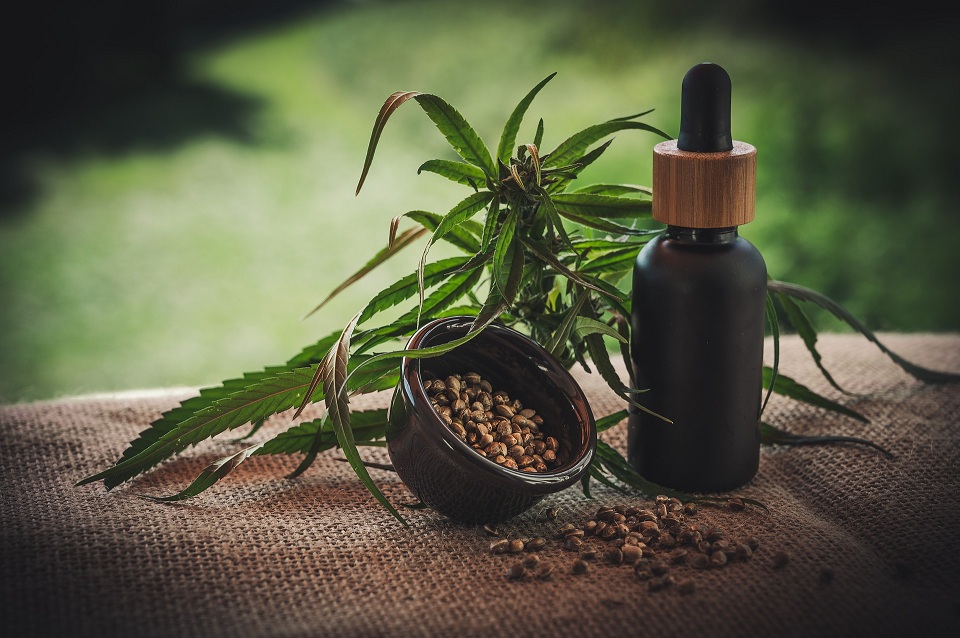 A study published in 2015 suggests that the antispasmodic properties of CBD could benefit asthma patients by easing muscle spasms, which are common due to the contraction of the muscle in the lungs. It could also reduce inflammation and improve breathing in the patient. Research also suggests that CBD can open up the bronchioles that are constricted during asthma attacks by dilating the passage and ensures a free flow of oxygen to the body.
A study published in 2015 suggests that the antispasmodic properties of CBD could benefit asthma patients by easing muscle spasms, which are common due to the contraction of the muscle in the lungs. It could also reduce inflammation and improve breathing in the patient. Research also suggests that CBD can open up the bronchioles that are constricted during asthma attacks by dilating the passage and ensures a free flow of oxygen to the body.
CBD oil capsules or tinctures can be the best means of utilizing the compound. Look for high-quality CBD oil or cannabis seeds to grow your very own pet plant. Produce from Sleep relief seed bank premium Cannabis Seeds will give you a premium harvest to make CBD oil for medicinal applications.
4. Mullein
A simple preparation using the vibrantly colored flowers of Mullein can curb asthma, tuberculosis, cough, flu symptoms, and bacterial infections. The herb has been in use by Amish (a community of fellowships of a traditional Christian church from the European region) and Native Americans for many years to ease respiratory problems such as cough, breathing difficulties. Some believe that the powerful healing properties of the herb are good enough to protect and treat lungs damaged from prolonged exposure to smoke.
The herb helps in removing excess mucus from the respiratory tract and relieves chest cold and cough. It contains saponins that are responsible for eliminating the phlegm from the tract as well as for lubricating the walls to soothe the irritation and avoid dry cough.
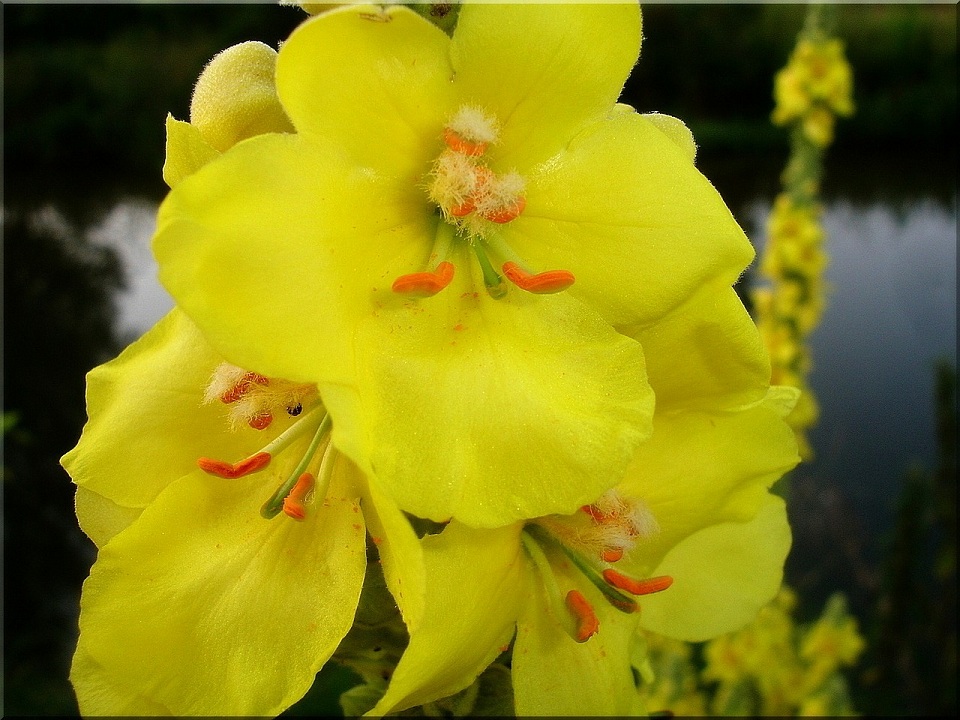 A study shows that the plant extract could have particular benefits to relieve swelling and breathlessness during asthma. Clinical trials have proven that the herb can, in fact, ease inflammation in both animals and humans, and relax the muscle in the respiratory tract to alleviate symptoms, such as shortness of breath.
A study shows that the plant extract could have particular benefits to relieve swelling and breathlessness during asthma. Clinical trials have proven that the herb can, in fact, ease inflammation in both animals and humans, and relax the muscle in the respiratory tract to alleviate symptoms, such as shortness of breath.
Another study aims to understand the antibacterial properties of the plant. The observations indicate that mullein extracts could inhibit bacteria from food and soil, and similar effects are also possible inside our lungs. There is limited human research available to understand the extent of effectiveness. With more research, we might understand the true potential of the herb to treat bacterial infections.
Mullein tea is one of the most common ways of consuming the herb for a lung detox. You can boil 3 grams of dry leaves for about 30 minutes to brew a healthy cup of tea. Alternatively, you can also explore tinctures, tea bags, extracts, and capsules for this purpose.
5. Peppermint
The engulfing aroma of the peppermint herb has added flavors to your kitchen recipe, toothpaste, cosmetics, soaps, and several other everyday goods. While the herb is known for its strong menthol aroma, there is incredible medicinal value to the plant.
Peppermint constituents rosmarinic acid of the phenol group, along with menthone and menthol, that is responsible for its flavors. But they can also cure respiratory problems like eliminating nasal congestion, difficulty in breathing, such as in the case of asthma.
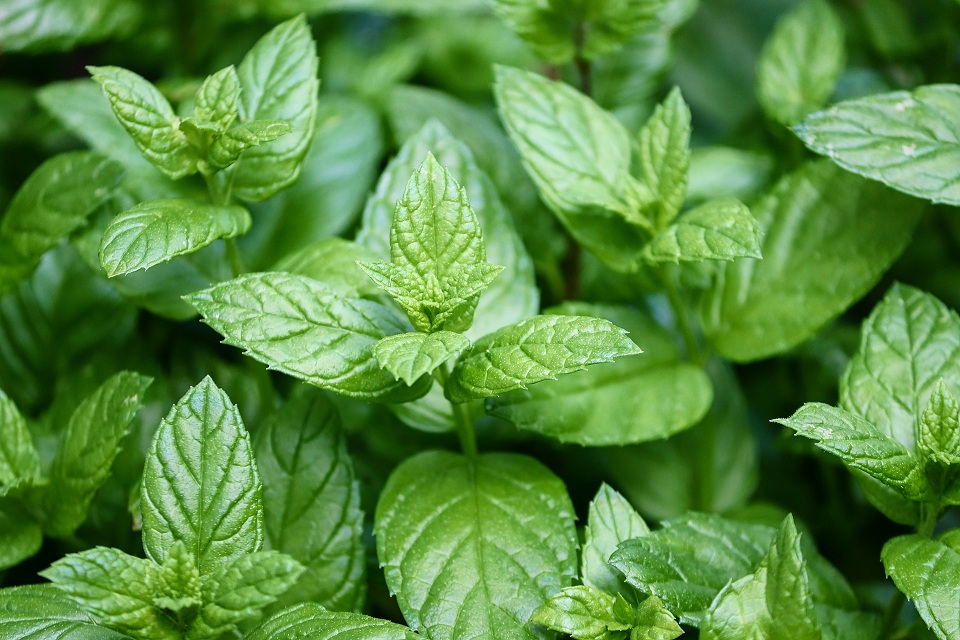 A study at the Israel Institute of Technology aims to investigate the effects of essential oils in clearing upper respiratory tract infections. The spray contained a mixture of essential oil solutions, including peppermint, showed positive results, almost immediately indicating its efficiency to treat these ailments. Peppermint oil can dissolve the mucus formation in the inner lining of the lung and eliminate the difficulty in breathing, such as in the case of asthma.
A study at the Israel Institute of Technology aims to investigate the effects of essential oils in clearing upper respiratory tract infections. The spray contained a mixture of essential oil solutions, including peppermint, showed positive results, almost immediately indicating its efficiency to treat these ailments. Peppermint oil can dissolve the mucus formation in the inner lining of the lung and eliminate the difficulty in breathing, such as in the case of asthma.
The oil also has astringent properties that enable the users to relieve symptoms of sinusitis such as dry cough, nasal congestion, throat infections, and cold. You can boil a few peppermint leaves in water and drink to detox the mucus from your lungs.
6. Wild Cherry Bark
The herb comes from the black cherry tree and has been useful for hundreds of years for its antimicrobial and anti-cancer properties. Apart from these, the herb is also useful as a nasal decongestant that can eliminate the mucous lining from the lungs.
 The plant contains amygdalin that is a toxic glyceride capable of eliminating the cough reflex common in the case of many respiratory tract infections and ailments such as asthma. The hydrolysis of the glyceride converts it into prussic acid that can treat chronic respiratory problems such as bronchitis and whooping cough. The herb also has anti-inflammatory properties and astringent effects and can thus inhibit the formation of mucus layers inside the lungs and ease inflammatory symptoms leading to a dry cough.
The plant contains amygdalin that is a toxic glyceride capable of eliminating the cough reflex common in the case of many respiratory tract infections and ailments such as asthma. The hydrolysis of the glyceride converts it into prussic acid that can treat chronic respiratory problems such as bronchitis and whooping cough. The herb also has anti-inflammatory properties and astringent effects and can thus inhibit the formation of mucus layers inside the lungs and ease inflammatory symptoms leading to a dry cough.
But Wild Cherry bark is probably the most controversial herb on the list where the dosage is everything. The glycerides that are responsible for several benefits could also turn into a toxic substance in higher quantities. Consuming minimal dosage as anywhere between 0.5 -2gms or one teaspoon infused in water can be beneficial. Alternatively, you can also choose tinctures with about 40% concentration for proper dosage.
7. Thyme
Thyme is a refreshing kitchen ingredient that is also a powerful expectorant, making it the ideal choice for a lung cleansing session. The essential oil derived from the herb has potent benefits to relieve cough, cold, and sore throat.
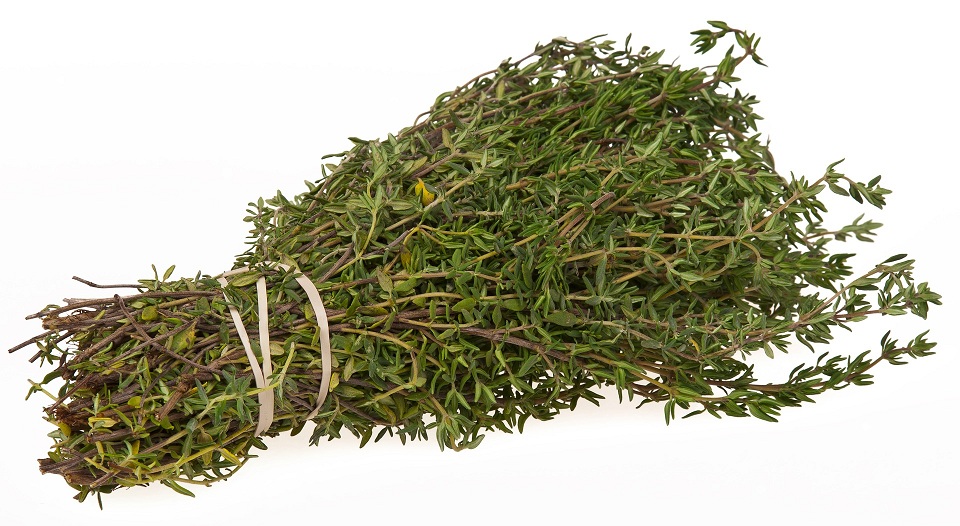 The herb contains caffeic, rosmarinic acid, saponins, flavonoids, and luteolin, which are responsible for a large profile of effects, such as antibacterial, antimicrobial, and antioxidant. The flavonoids of the herb can reverse free radical damage, and the saponins can ease nasal congestion and relax the airway. The interaction of Thyme oil is like that of bronchodilators that can not only ease the muscles in the air pathway but can also improve the efficiency of eliminating mucus formation. Some believe that thyme can also have an antihistamine effect and inhibit the formation of histamine due to allergic reactions to reduce inflammation.
The herb contains caffeic, rosmarinic acid, saponins, flavonoids, and luteolin, which are responsible for a large profile of effects, such as antibacterial, antimicrobial, and antioxidant. The flavonoids of the herb can reverse free radical damage, and the saponins can ease nasal congestion and relax the airway. The interaction of Thyme oil is like that of bronchodilators that can not only ease the muscles in the air pathway but can also improve the efficiency of eliminating mucus formation. Some believe that thyme can also have an antihistamine effect and inhibit the formation of histamine due to allergic reactions to reduce inflammation.
Apart from aiding common cold and flu symptoms, the herb is also capable of treating chronic ailments such as bronchitis and severe fungal infections. Thyme works best in unison, and hence brewing a cup of tea with thyme and peppermint will give you a flavourful and useful preparation to consume for elevate lung cleansing benefits. Together, they can also improve your respiratory health.
These amazing herbs can act as respiratory support and can clear out infections from the lungs to enable you to breathe easy.


